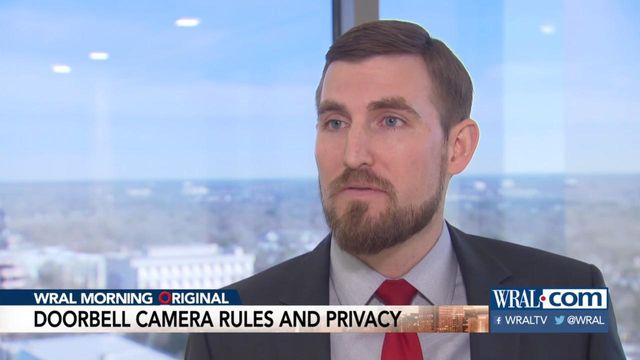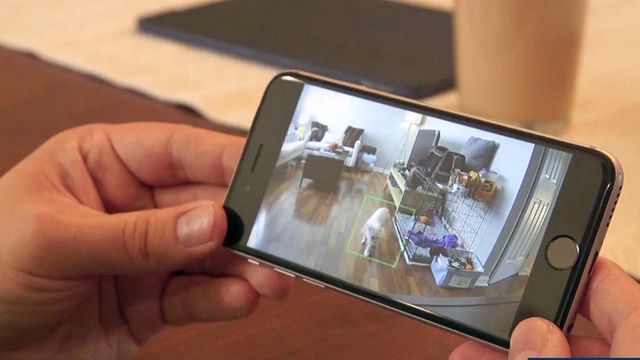Doorbell cams: What's legal, what's an invasion of privacy
Doorbell cameras like Amazon's Ring and Google's Nest Hello are growing in popularity, but privacy is often an overlooked issue.
Posted — UpdatedMost people use doorbell cameras to keep eye on their property, but Will Quick, an attorney at Brooks Pierce in Raleigh, said there's also potential for misuse.
“It’s a good practice not to focus your camera on a place that’s solely your neighbor’s property, because that sort of [implies you're not just] using it for your own protection," Quick said.
When you buy doorbell cameras, you’re agreeing to the company’s terms and services, which mainly ask users to follow laws based on where they live.
Where can you point the camera?
Ring’s terms ask users to not point the camera at public roads, but Quick said that is just a suggestion. "There’s really not much binding on you as the owner of the device relative to third parties," Quick said.
What does apply are general privacy laws -- which state that people should have a reasonable expectation of privacy. According to Quick, that means you can’t aim the camera at your neighbor’s bathroom or bedroom, but public roads or places visible from the street are fair game.
"If a third party is walking down the street or they’re in their driveway, it’s a place that doesn’t have a reasonable expectation of privacy, and it’s pretty wide open as to what you as the owner of the camera can do with that content," Quick said.
Under that logic, it's also okay to point the camera at driveways.
“If you’re a neighbor of someone who has one of these cameras and it happens to point across the street and it catches your door or your driveway, those are not places where under the law you have a reasonable expectation of privacy," Quick said. "Anyone driving by on the street could see those areas as well, so there’s really not much you can do to enforce against that happening.”
If illegal activity is caught on camera and police see it, they can use video against the person caught on camera.
What about audio?
The law in North Carolina says you can't record audio without consent from at least one person involved in the conversation. That means if you speak to someone at your door through the app, you're allowed to share that recording.
Privacy experts say as technology continues to advance, laws will likely change.
Related Topics
• Credits
Copyright 2024 by Capitol Broadcasting Company. All rights reserved. This material may not be published, broadcast, rewritten or redistributed.






